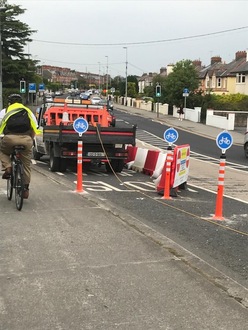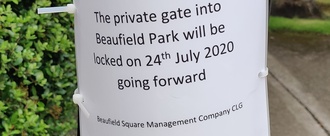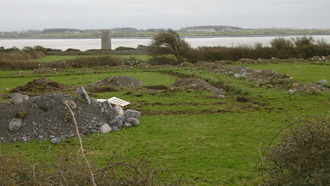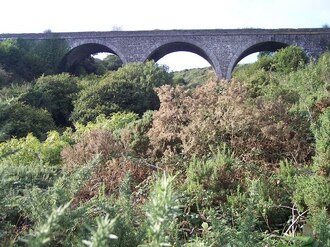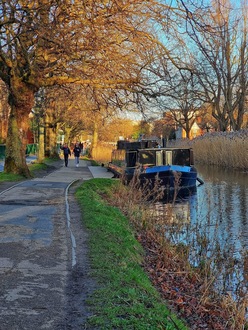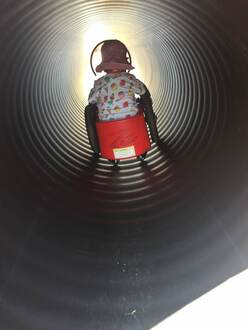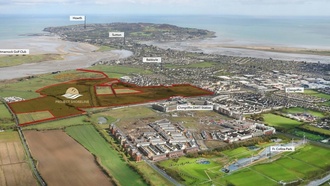- Featured
- Animal Rights
- Anti-racism
- Arts & Culture
- Children
- Climate
- Corporate accountability
- Crime
- Disability rights
- Economic
- Education
- Environment
- Food and Sustainable Production
- Gender Equality
- Governance and Transparency
- Health
- Housing
- LGBT Rights
- Mental health
- Northern Ireland
- Planning
- Privacy and Data Protection
- Rural Inequality
- Social Justice
- Trade
- Transport and Infrastructure
- Workers' Rights
- More
-
Keep New Layout on South Circular Road in Limerick CityAs Covid 19 cases have started to rise again across the country and in Limerick it is vital that covid mobility measures, put in place to facilitate social distancing, are kept in place for the forseeable future. South Circular Road runs parallel to Ballinacurra and O'Connell Avenue in Limerick City. It is a residential street and over the past month as a result of these Covid mobility measures, locals, both living on the street and in the surrounding neighbourhoods, have found it a pleasure to walk or cycle along, to bump into neighbours and have a chat in the open air, at a socially safe distant, without battling the noise of heavy through traffic or risking their lives as cars speed through. This has all been facilitated by the new one way traffic system, blocking incoming traffic from the Dooradoyle side and preventing the use of the street as a rat run for people accessing the city centre. Now locals from South Circular Road itself and from the suburbs of Dooradoyle and Raheen can use it as a safe cycle route into the city, a quiet, comfortable walking route in the evenings and a place to meet and chat to each other. South Circular Road could become the ideal road for young people to cycle and walk to school when they return in a few weeks. Over 6,800 students attend university or primary or secondary school on the SCR and many more use it as an access route to other city centre schools. Many of the children attending these schools are local to the city but are driven to school or creche by anxious parents as there currently is no safe road for them to cycle or walk. South Circular Road can be that safe route - reducing traffic in the city, improving the quality of the air we all breathe, giving our young people confidence and independence as they make their own way to school and creating healthy habits that will last them a lifetime. For those that need to drive to school access is retained via the Dock road and Ballinacurra road. Please sign this petition to show Limerick City Council that the one way system needs to stay and that we, as the people of the city, are in agreement on this.240 of 300 SignaturesCreated by Sarah Enright
-
Stop quarry application near new special needs schoolThe noise pollution, dust, and traffic a quarry only 1/2 a kilometre away from the school would create throughout the day would be detrimental to the peaceful, quiet, and healthy learning environment needed for students with special needs. This is a new school being built, and nearly completed, at a location designed especially for these special students with various disabilities. The quarry application must be denied as such to protect the rights of these disabled students with special needs.935 of 1,000 SignaturesCreated by Tracy McGinnis
-
Save The Globe, Ri Ra and Georges Street as we know it!The Central Hotel is a landmark protected building built in 1887 and The Globe and RiRa, The Library Bar have become iconic institutions on Georges street Dublin is a progressive and thriving city and that's a positive thing but these spaces have historical and cultural significance to locals and visitors alike and should not be replaced by yet another sterile, soulless hotel for tourists. If we keep chipping away at the soul of the city there will be nothing left worth visiting. Dublin once boasted the longest remaining Georgian Terrace in the world until it was demolished and replaced by the hideous eyesore that is The ESB Building in the 60s. Once these buildings are torn down there's no going back! Let's not let history repeat itself Please sign and share and take care1,913 of 2,000 SignaturesCreated by Cat Irvine
-
Reopen the Beaufield Manor public pathwayThis is a public pathway that has existed since the 1980s. 100s of children use this as their route to school every day, and the route around will add almost a kilometre to their journey. For kids starting as young as 5 years old, this will make walking infeasible, and will result in hundreds of additional car journeys. This will likely undo years of progress the school has made in promoting a green school commute policy. The school has been in existence long before the houses in this estate were even built, and the footpath access was negotiated by the school, at the time the Beaufield Manor estate was initially granted planing permission in the late 1980s. Ironically, this measure will also cause traffic mayhem at the front entrance to Beaufield Manor - the gated housing estate that decided to block the pedestrian access in the first place. It also prevents the Beaufield Manor residents having a pedestrian access shortcut towards Kilmacud, Sandyford Business Park, and the nearby Luas. It is in nobody's interest, and is very shortsighted.522 of 600 SignaturesCreated by Michael Ryan
-
Save Havelock House from demolitionHavelock House is one of Northern Ireland’s best-known cultural landmarks. It is also one of our most threatened buildings – developers Olympian Homes plan to tear it down to make for an eight-storey apartment block. Time is running out: Belfast City Council will decide on Olympian’s planning application in September. Its decision may end the remarkable story of the Victorian linen factory which became a television icon. As the home of Ulster Television (UTV) for almost sixty years, Havelock House had an integral role in the birth of Northern Ireland’s television industry. It was the place where iconic local series such as Teatime with Tommy, Romper Room and Good Evening Ulster were made. The building is also nationally important: it is the last surviving small station from the pioneering days of UK television. Features such as the original UTV studio are our last built record of the birth of regional television on these islands. TV history was made there. UTV was the first small regional ITV station and Havelock House pioneered a new low-cost TV production model. Its success allowed other less populous parts of the UK to have their own local stations. It was also the site of the first adult education shows on UK television, a pioneering ‘rooftop’ studio and the first satellite link-up between a UK regional station and the US. There’s more to Havelock House than television though – the building has been a familiar presence on Belfast’s Ormeau Road since 1871. After its stint as a linen factory, it became the headquarters of the All-British Trading Stamp Company, an early loyalty scheme where customers received stamps with their shopping which could be trade in for free items. The building then saw service during World War II as accommodation for soldiers who were protecting the city’s bridges from German attack. After the war, it became an engineering works and a dressmakers. Its exterior also hides a secret – beneath the plaster render applied by UTV in 1959, there is attractive polychromic brickwork and stone cut dressings similar to buildings such as the Riddell warehouse, which unlike Havelock House, have listed status. Havelock House is a versatile and historic building which stands ready for a new chapter in its remarkable story. It should the showpiece of any redevelopment of the area rather than torn down for yet another faceless apartment block. As guardians of our city’s heritage, Belfast City Council must reject any proposal for the building’s demolition and put in place an appropriate strategy for its protection.967 of 1,000 SignaturesCreated by Ken Griffin
-
Reopen gates in Phoenix ParkUpdate: OPW have released this. All gates bar Knockmaroon open from Friday July 10th. Knockmaroon will open when works completed. Truly hope lessons can be learned from this and all stakeholders are considered in future planning. Thank you all for your support!! https://m.facebook.com/story.php?story_fbid=3500180506661143&id=132971523382075&anchor_composer=false Phoenix Park is a worldclass amenity to the people who live nearby, on day trips, and tourists alike. The decision to only have 2 gates open to vehicular traffic is seriously restricting access to the park. Traffic volumes are increasing now that we are coming out of lockdown. Congestion in the surrounding areas is already a huge issue. This will only increase with these access routes cut off without an alternative solution. It can now take up to an hour to get from one end of the park to the other ; particularly at weekends with increased demand for the Zoo, Farmleigh and the Visitor Centre. Engine emissions from cars sitting on Chesterfield Avenue must surely be offsetting any potential environmental gain. Parts of the Park will become no go areas due to their isolation. There are no plans for an increased OPW presence with the gate closures. This decision seems to have been rushed through with little forward thinking and engagement with local communities. Give the park back to the people and then work on alternatives to reduce car traffic.1,652 of 2,000 SignaturesCreated by Alison Reynolds
-
Stronger Regulations for AirbnbAirbnb is a a major factor on homelessness. As Airbnb is so unregulated many landlords are evicting tenants to turn their premises into nightly lets. This is causing the massive reduction of properties available in the private rental market. Therefore pushing up the cost of rents. The People of Ireland are living in hotels and B&Bs while the tourists are living in the houses. Until this sector is regulated and the rules enforced this will continue to happen. Covid 19 has highlighted this, we saw 1000s and 1000s of houses lying empty because travel restrictions. I am urging the Government to do someting about this once and for all.17 of 100 SignaturesCreated by Caroline Neill

-
Public Benefit Manifesto for Roscam Peninsula and A Legacy Project Proposal for Galway 2020This Global Public Benefit Manifesto for the Roscam Peninsula, if well executed, will lead to the preservation & restoration of the National Monument and preserve the surrounding pastoral landscape of this Bronze age settlement and create an iconic “Sustainable by Design” Culture, Heritage, Arts and Theatre experience embedded within a dramatic natural seaside parkland setting. This can be a cornerstone Galway 2020 Legacy Project to mark Galway's year as European City of Culture67 of 100 SignaturesCreated by James McCarthy
-
Restore the Cork, Bandon and South Coast Railway as a greenwayThe Covid crisis has shown that recreational space in rural Cork is scarce and this is especially true for the Cork-Bandon-Skibbereen area. But with quiet roads, more people were out cycling and walking than ever before, showing how eager we are to take up active travel. Let us build the infrastructure to support it. In Ireland, we are already seeing the effects of the next crisis we have to face: The climate crisis needs bold and quick action. This is a unique opportunity to support a shift in transport modes for Cork commuters while also creating recreation space close to the home of thousands of people. With electric bikes becoming more easily available, cycling is quickly gaining attraction as an affordable, accessible and healthy alternative to the commute by car. By providing an infrastructure separate from the N71 we would not only provide a safe route for cyclists. Motorists would profit from this change, too: By reducing the number of cars on the road we would improve traffic flow and move cyclists - often seen as obstacles by motorists - off the road. The more extensive the greenway, the more likely it will also have a positive impact on tourism, with knock-on effects for local businesses. We know how many people use the Waterford greenway and the positive effects it has on the region. By contributing to Irelands cycle network we could even attract international active tourism. As a historic railway, the touristic value of the greenway would be priceless. With many of the structures still intact the former railway would itself be an attraction. We do understand that there have been prior attempts at this undertaking that have been dismissed or delayed due to the costs involved. However we would like Cork County Council to address this with the same urgency, the dedication and the budget they would use for a motor-traffic-centered infrastructure project. This is one of the bold actions required to prepare Cork County for the future. There has also never been more funding made available for active travel than ever before. The investment would benefit a very broad set of people, including motorists. We would like Cork County Council do address this project as a matter of priority.125 of 200 SignaturesCreated by Janis Altherr
-
Barge residential and commercial mooring permits for The Grand and Royal Canal in DublinAdd visually to the area . Breath life into the canals . Prevent antisocial behavior in portobello and all along our canals in derelict stretches of water . Asking Waterways Ireland to deliver on their mission statement.7,131 of 8,000 SignaturesCreated by Gar Longain
-
Make Play and Leisure Spaces AccessibleI am writing to you today as a primary school teacher, and more importantly as a mother of two young boys who are disabled. My four year old is a full-time wheelchair user and we are unsure yet as to whether his younger brother will also require a wheelchair. My boys are both bright, intelligent, inquisitive children who are highly sociable. In light of current events during this pandemic, I have seen so many parents and teachers discuss how this may impact our kids and the overwhelming consensus amongst us all have been concerns regarding the possible implications on their social development as they cannot play with their friends, explore nature, play freely and make new friends at local playgrounds etc. It has really made me stop and think as these have been ongoing concerns of mine due to our sons’ mobility needs. The truth of it is, we have found it very difficult to find playgrounds where Oscar can play. As well as not having any wheelchair friendly equipment for use, many playgrounds have completely inaccessible ground coverings like tree bark. I’m a firm believer that if I have an issue with something, I will try to offer alternative suggestions in order to help resolve said issue. A simple Google image search for ‘wheelchair friendly activities in playground’ yields a plethora of equipment that is accessible not only for users of wheelchairs, walkers and buggies, but also for children without disabilities. Slieve Gullion Forest Park is close to where we live and would be the best we have experienced. It’s not lost on me that this particular playground is in Northern Ireland, where the UK has much stricter protocol for accessible planning regulations. Within my local area in recent times, I’ve seen two new playgrounds built, one completely inaccessible to wheelchairs due to the bark surfaces and use of steep hills in its designs. It absolutely baffles me how in these times when we are seemingly a progressive country, that we completely omit the needs and right to play of a whole category of children. We teach inclusion and diversity in our schools every day, yet when this is not practised by our leaders, it is unforgiveable. We cannot accept this as an oversight any longer, we cannot accept the meagre list of accessible playgrounds dotted few and far between across the entire country. There is very little opportunity for a family to engage in a spontaneous stop-off at the playground when the statistics show that the playground will more than likely be inaccessible for the disabled child. Accessibility needs to be engrained within everything we plan for our public spaces. Untold damage is being done to our disabled children when they are being excluded and made to feel less than in their own hometowns. - Article 31 of the UN Convention on the Rights of the Child states that: “Every child is entitled to rest and play and to have the chance to join in a wide range of activities including cultural and artistic activities.” - Article 30(5d) of the UN Convention on the Rights of Persons with Disabilities states that “children with disabilities should have equal access with other children to participation in play, recreation and leisure and sporting activities, including those activities in the school system.” Outdoor natural areas are another area which raise accessible issues within the disability community. I can only speak from my own experience, as an avid nature lover and mother to two children with mobility needs. I understand that the natural world is best left to its own devices and can be highly inaccessible. However, a lot of our natural amenities that are open to the public have some sort of surface laid down as a path for the public to use. Why not go one step further and make sure that surface is also wheelchair friendly? The choice of what gravel is used can make all the difference for wheelchair users’ accessibility. The Irish Wheelchair Association has published a guide called The Great Outdoors which provides excellent detail. As an island country, our beaches are areas of beauty which everyone should be able to access, and not just from the side-lines. Beach wheelchairs are available at some sites, but not nearly enough, particularly at times of the year when they are in high demand. Availability of sand mats such as Access Trax would open up access immensely. “Foldable, lightweight, portable pathways for accessibility over outdoor terrain” would allow wheelchair users to roll right onto the beach as well as walking mobility aids, buggies and prams. - Article 30 of the UN Convention on the Rights of Persons with Disabilities recognises that disabled people should “Enjoy access to places for cultural performances or services, such as theatres, museums, cinemas, libraries and tourism services, and, as far as possible, enjoy access to monuments and sites of national cultural importance.” As an educator and a parent, all I want is for my children to be allowed every and equal opportunity to thrive and make their mark on the world. I am available for any discussion should you wish, but I would ask you to note that I am just one voice of many. My voice pertains to my experience as a parent of my disabled children. There are many voices of other parents , but most importantly voices of disabled adults who have lived through experiences of being excluded and treated differently and unfairly. This is only one area of accessibility we have come up against, and unfortunately, I am not naïve enough to hope that it is our last.834 of 1,000 SignaturesCreated by Munny Hamilton
-
Growing ClongriffinGrowing local community, business and amenities.744 of 800 SignaturesCreated by Игор Давид

